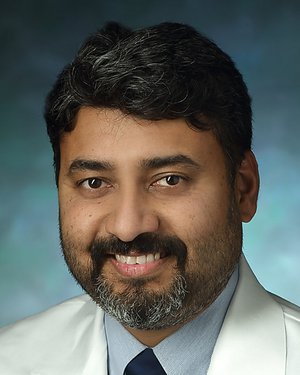Research Lab Results
-
Jeremy Greene Lab
Research in the Jeremy Greene Lab focuses on the history of disease and the ways that medical technologies affect our understanding of what it means to be sick, healthy, normal or abnormal. Particular areas of interest include 20th century clinical medicine, pharmaceuticals, medical technology, medical anthropology and global health. -
Benjamin Bodnar Lab
Research in the Benjamin Bodnar Lab focuses on global health, particularly the application of quality-improvement techniques in resource-limited and developing health care environments. Lab work utilizes insights gained through Dr. Bodnar's past work with projects including Partners in Health, The Millennium Villages Project and the Mulago University-Yale University Collaboration in Uganda.
-
Jeremy Sugarman Lab
Research in the Jeremy Sugarman Lab focuses on biomedical ethics—particularly, the application of empirical methods and evidence-based standards to the evaluation and analysis of bioethical issues. Our contributions to medical ethics and health policy include work on the ethics of informed consent, umbilical cord blood banking, stem cell research, international HIV prevention research, global health and research oversight. -
Sean Tackett Lab
Research in the Sean Tackett Lab explores methods for assessing and improving medical education. Our recent work has included the design of an evaluation framework for World Federation of Medical Education basic standards for medical education. We also have participated in a student-driven initiative to develop a global health education program at the Johns Hopkins University School of Medicine.
-
Amita Gupta Lab
The Amita Gupta Lab focuses on drug trials to prevent and treat HIV, tuberculosis (TB) and other co-morbidities in adults, including pregnant women and children who reside in low-income settings. We also conduct cohort studies assessing HIV, inflammation and nutrition in international settings; TB in pregnancy; and risk factors for TB in India (CTRIUMPH). We collaborate with several faculty in the Center for TB Research, Division of Infectious Diseases and the School of Public Health.
-
John Sampson Lab
Researchers in the John Sampson Lab investigate relevant, appropriate, affordable and sustainable ways to improve anesthesia and perioperative care in low-resource settings. The team’s research interests include the Universal Anesthesia Machine; interpersonal relationships between anesthesia providers and their patients; how the quality of those relationships impacts professionalism, autonomy, anxiety, patient cooperation and patient satisfaction; how disease influences cerebrovascular reactivity as measured by MRI; and how education and communication can improve medical care in Africa and other austere environments. The team is currently working with clinicians in Ghana, Ethiopia and Kenya. -
Gerard Anderson Lab
Research in the Gerard Anderson Lab examines chronic conditions, comparative insurance systems in developing countries, medical education, health care payment reform and technology diffusion. We’ve conducted reviews of health systems for USAID and the World Bank in several countries.
-
Gregory Kirk Lab
Research in the Gregory Kirk Lab examines the natural history of viral infections — particularly HIV and hepatitis viruses — in the U.S. and globally. As part of the ALIVE (AIDS Linked to the Intravenous Experience) study, our research looks at a range of pathogenetic, clinical behavioral issues, with a special focus on non-AIDS-related outcomes of HIV, including cancer and liver and lung diseases. We use imaging and clinical, genetic, epigenetic and proteomic methods to identify and learn more about people at greatest risk for clinically relevant outcomes from HIV, hepatitis B and hepatitis C infections. Our long-term goal is to translate our findings into targeted interventions that help reduce the disease burden of these infections.
-
Zishan Siddiqui Lab
Research in the Zishan Siddiqui Lab focuses on patient-centered care and satisfaction, preoperative medicine and clinical reasoning. We are also interested in international medicine. In a previous collaboration with Daniel Brotman, M.D., we discovered that hospital renovations do not improve patient satisfaction.
-
Larry Chang Lab
Research in the Larry Chang Lab focuses on innovative, multidisciplinary and pragmatic approaches to impacting the HIV/AIDS pandemic. Our research investigates ways to improve HIV/AIDS care in low- and middle-income settings through strategies that include quantitative methods, qualitative methods, community-based trial designs, and behavioral science and economic evaluations. In addition, we research mobile technologies for health (mHealth) strategies for improving global public health and clinical care, including novel applications for intimate-partner violence intervention, dengue surveillance, and HIV care, surveillance and prevention.


